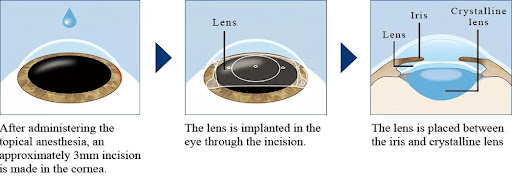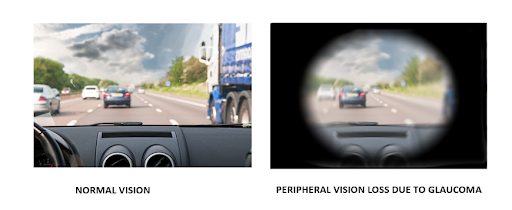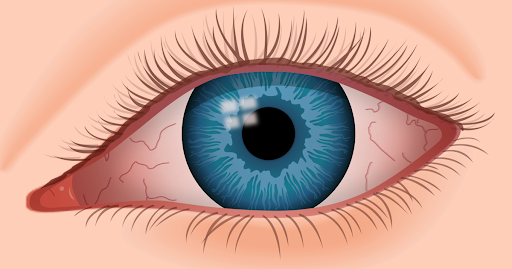Anterior uveitis is one of the most common types of ocular inflammation that affects the uvea—the eye’s middle layer which is composed of the iris, ciliary body, and choroid. This eye condition is primarily characterized by eye redness, soreness, and blurred vision and can impact people of all ages.
If untreated or inappropriately treated, anterior uveitis may permanently damage the ocular tissue, leading to a chronic, sight-threatening condition. The role of eye care professionals like Dr. Paik Dong Won and Dr. Jung Sae Rom from Eyeonce Eye Clinic is vital to manage and treat anterior uveitis effectively.
Causes and Risk Factors
In most cases, the primary cause of anterior uveitis is still unknown; however, it can still be associated with the following causes and risk factors:
- Existing Autoimmune Conditions – Individuals suffering from inflammatory disorders such as sarcoidosis, systemic lupus erythematosus, or Crohn’s disease are more susceptible to anterior uveitis due to underlying immune system dysfunction.
- HLA-B27 Gene – In individuals with HLA-B27, the immune system becomes more prone to recognizing specific antigens as foreign, causing a heightened autoimmune response directed against the eyes, resulting in inflammation.
- Ankylosing spondylitis – Around 30-40% of individuals with ankylosing spondylitis—an autoimmune disease—experience at least one episode of anterior uveitis. The inflammation characteristics of ankylosing spondylitis can extend to other parts of the body, including the eyes.
- Infections – Certain infections such as cat-scratch disease, herpes zoster, syphilis, toxoplasmosis, and tuberculosis may provoke an immune response that inadvertently affects the eye and can lead to inflammation, affecting the anterior uvea.
- Direct eye trauma or surgery – When the eye experiences injury or undergoes surgery, the body’s immune response can be triggered, leading to inflammation in the uvea.
- Genetic predisposition – People with a family history of anterior uveitis have a higher risk of developing the condition
Eyeonce Eye Clinic’s experienced eye care practitioners specialize in treating and diagnosing anterior uveitis, providing personalized treatment plans tailored to each patient’s needs. With a deep understanding of the causes and risk factors, our experts can devise effective strategies to help you regain your normal vision!
Complications
Untreated anterior uveitis can trigger the following complications:
- Irreversible vision loss
- Cystoid Macular Edema
- Damaged vitreous gel
- Glaucoma
- Detached retina
- Cataracts
- Posterior synechiae
- Retinal scarring
- Optic nerve damage
- Retinal detachment
Undergoing regular eye check-ups is a proactive way to safeguard your vision from anterior uveitis. Early detection through routine examinations with Eyeonce’s Dr. Paik Dong Won and Dr. Jung Sae Rom helps prevent complications, ensure timely treatment, and preserve your vision and quality of life.
Symptoms
Individuals with anterior uveitis may experience a range of symptoms that vary in intensity, including:
- Eye redness
- Eye pain
- Light sensitivity (Photophobia)
- Blurred vision
- Eye pressure
- Vision loss
- Presence of floaters
The symptoms of anterior uveitis may gradually develop quickly, affecting one or both eyes. If you are experiencing any of these symptoms, do not fret. Our eye care professionals at Eyeonce are equipped with the right equipment and treatment approaches to best address your condition.
Diagnosis and Treatment
Eyeonce Eye Clinic is a beacon of hope for people with anterior uveitis. Our expert ophthalmologists provide a comprehensive diagnosis for this sight-threatening condition following these procedures:
- Medical history and symptoms review – It is the hallmark procedure for diagnosing anterior uveitis. You will be asked about your medical history, including any existing health conditions, medications you are taking, and any recent infections.
- Physical examination – A thorough eye examination is needed to assess the affected eye’s appearance, signs of inflammation, redness, and changes in the iris. During this examination, our eye care professionals will also examine your visual acuity and evaluate how well your eyes respond to light.
- Slit-lamp exam – Our eye doctors use the slit lamp to magnify and illuminate the front of the eye, including the cornea, iris, and lens. The slit-lamp exam helps our experts to detect any signs of inflammation, cells in the anterior chamber, and other abnormalities.
- Tonometry – This is done to measure the pressure inside the eye (intraocular pressure).
- Pupil dilation – This diagnostic procedure allows our eye doctors to have a better view of the back of your eye, including the retina and optic nerve, essential for a comprehensive assessment.
- Laboratory test – Blood tests may be conducted to check for underlying systemic conditions, autoimmune disorders, or infections causing anterior uveitis.
- Chest or brain imaging – This test is done to look for systemic autoimmune diseases.
- Fluorescein angiography – Our ophthalmologists conduct this test to get images of blood vessels at the back of the eye.
- Optical coherence tomography – OCT is essential to yield 3D images of the back of the eyes.
- Gonioscopy – This diagnostic test examines the front of the eyes where liquid drains.
- Optical coherence tomography angiography – OCTA is done to produce 3D images of blood flow through the eye.
- Visual field test – It is crucial to carry out this test to check for optic nerve damage that can affect your peripheral vision.
If confirmed that you have anterior uveitis, the following treatments may be introduced:
- Topical corticosteroids – These are eye drops containing corticosteroid medication, often the first-line treatment for mild to moderate anterior uveitis.
- Mydriatics (pupil dilators) – Mydriatic eye drops are used to dilate the pupil, which helps prevent the iris from sticking to the lens, reducing pain and the risk of complications.
- Cycloplegics – These are eye drops that relax the ciliary muscle, reducing eye pain and minimizing the risk of developing synechiae (adhesions between the iris and lens).
- Oral corticosteroids – When topical corticosteroids do not work, oral ones may be prescribed to control systemic inflammation and reduce uveitis symptoms.
- Immunosuppressive medications – Our eye doctors may introduce immunosuppressive drugs to modulate the immune response and reduce inflammation for cases resistant to corticosteroids or requiring long-term management.
- Biologic Therapies – Biologics are immunosuppressive medications targeting specific molecules involved in the inflammatory process.
- Surgery – Surgical interventions are considered in rare cases of severe anterior uveitis with complications like glaucoma or cataracts.
Remember that the choice of treatment varies on individual circumstances. At Eyeonce Eye Clinic, we determine the best treatment option for your unique based on the severity of your anterior uveitis, overall health, and underlying conditions.
Why choose Eyeonce Eye Clinic Gangnam for anterior uveitis treatment?
Utmost Patient Care
Our eye care professionals and staff ensure to give you your money’s worth. We guarantee you receive the best medication possible and assure you that you are guided and understood, making you feel comfortable and confident at every step.
Comprehensive Consultation
Eyeonce Eye Clinic offers comprehensive eye examinations to evaluate your condition and determine the best anterior uveitis treatment. Our ophthalmologists take their time to cater to your questions and address your concerns, ensuring you make an informed decision about our vision correction options.
Expert Eye Doctors
Our ophthalmologists, Head Director Dr. Paik Dong Won and Medical Director Dr. Jung Sae Rom, are highly knowledgeable and adept in treating anterior uveitis. They always use the latest techniques and technologies to ensure optimal results.
Frequently Asked Questions (FAQs)
No. It is not contagious and is caused by factors like autoimmune disorders or infections.
Yes. Anterior uveitis can develop among people of all ages, including children.
While natural remedies may offer relief, they do not guarantee effective, long-term treatment. Consulting an eye doctor is the best option.
Conclusion
Anterior uveitis requires timely medical intervention, accurate diagnosis, and expert care to ensure the best results. With our comprehensive approach and experienced eye care professionals, Eyeonce Eye Clinic offers practical solutions for managing and curing Anterior uveitis. Book an appointment with us today!



